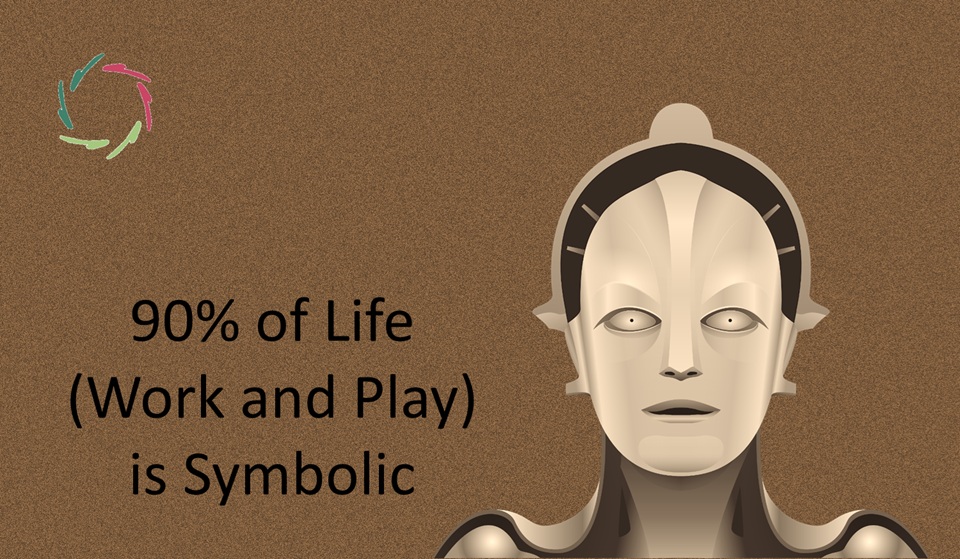Should Business Be Rational?

“We don’t care about science, as long as ‘it works.'” Of course, I don’t agree.
►►► WHY read this? Rationality is of utmost importance for business sustainability in every respect. ◄◄◄
Mechanic, organic
Regarding technology, there is not much of a problem. To everyone his smartphone. Well. This device couldn’t have been made without rational thinking. Science, technology, and rationality go together. If you are ‘against science,’ you may as well throw your smartphone out of the window. I’m sure you will not do so right away. I deduce from this that you are not against science. Thus, not against rationality.
In mechanical stuff, it’s obvious, as the example just showed. In organic stuff – say, us – it may readily be less obvious, but not, therefore, less important.
Meaning
Everything profoundly meaningful is harder to conceptualize, to talk about in crisply delineated terms. Crisp concepts may work well on everything but depth. That doesn’t mean that in-depth rationality should be abandoned. On the contrary, one should be deeply rational now more than ever.
Note that this is an endeavor, not an endpoint.
Deeply rational?
[see: “100% Rationality, 100% Depth“]
What is deeply-rational doesn’t eventually have different characteristics than what is non-deeply-rational. The end-goal is the same. The tools are the same. Only the domain is different.
Business should be entirely rational, mechanically and organically, at the surface and in-depth. This is an ethical standpoint in the first place.
What about efficiency?
Precisely, business being about efficiency, rationality – in every aspect – also. Science? Also. Moreover, it’s ingrained in its core, denoted with one word,
namely, not an obvious one, but a central one in science:
Parsimoniousness.
This is a continuous striving towards the need for as little concepts as possible to explain reality. For instance, the working of Wotan above the clouds becomes natural lightning, which becomes electricity, which becomes the working of electrons, which becomes that-what-we-are-searching-for. At each step, one gains more control and, well, business opportunities. In science, the continuous quest is to get rid of unnecessary concepts.
In business also, in striving for optimal rationality, we should tweak out unnecessary concepts for efficiency’s sake. This way, one can better see similarities in business processes and find ways to automate them, or at least make their handlings more efficient. For instance, unnecessary categorizations of people are just standing in the way for seeing them as what they are and their optimal motivation.
Unfortunately, many organizations appear to still be in the Wotan stage.
So, in relevance to human aspects:
Rational is not opposed to emotional. It includes the emotional. It is not opposed to depth. It includes depth. It is not opposed to efficiency. It includes efficiency.
Unless it’s not really rational. Here, we touch something crucial. If rationality stands opposed to the other stuff, then it’s probably not rationality from the beginning. One needs to look further into what is really the case.
In “It works,” one needs to know what works and to what goal.
Without having both clarified well (and unnecessary concepts removed), things are not sustainable. Companies come and go. Meanwhile, an immense amount of energy and resources may be wasted. A short-lived success happens by the grace of the competition doing worse — nothing to be proud of.
Even huge companies can topple when not having both clarified well (what and to what goal) in a rational way. This includes the mechanic and the organic.
And with what result? Human well-being?
A truly robust company thrives on being clicked into really human endeavors. The latter, eventually, make the company thrive. All the other companies are only momentarily surviving.
Business should be rational for business’ sake.
And business sake should be human sake. This is also for business’ sake.
If you care for your business in a truly sustainable way, strive for science at all levels and in all issues.
Especially in HR, rationality is mandatory.
There is no way around it.
All stakeholders should be aware of this, including the money.


